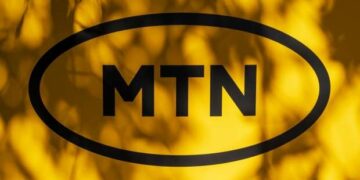Tax Cuts Must Be Matched With Strong Compliance Measures to Protect Revenue – BudgiT Ghana
Country Manager for BudgiT Ghana, Jennifer Moffat, says the success of government’s newly announced tax cuts will depend heavily on the effectiveness of compliance systems, sustained tax education, and reforms targeting leakages within the revenue chain.
Contributing to the NorvanReports, Economic Governance Platform (EGP) and Ghana Anti-Corruption Coalition (GACC) X Space discussion on the theme, “Ghana’s Tax Paradox: Can the VAT Reforms Deliver Relief While Expanding Revenue?”, Ms Moffat noted that while the budget introduces reductions intended to ease pressure on households and businesses, it simultaneously removes significant revenue sources that government must replace through improved administration.
She explained that past budgets show clear room for improved mobilisation, especially within the informal sector, making the government’s plans around sustained tax education, the modified tax regime, and simplified payment systems crucial.
“For us to be able to rake in revenue, we should focus more on the informal sector,” she noted. “Compliance is very key because if you are giving a lot of tax cuts and then you are not getting citizens to still pay their taxes, that’s going to be a problem.”
According to her, the 2026 Budget relies significantly on voluntary compliance — a challenge that requires substantial administrative reforms, clarity in tax obligations, and easy-to-use digital payment systems.
“The tax cuts do not necessarily mean people will automatically comply. There should be systems in place to ensure they will comply. I’m very happy we are having the digitalisation of the tax system, amendments of the tax laws, the national tax education campaign and even the modified taxation,” she added.
Ms Moffat said BudgiT Ghana’s recent informal sector taxation report — “Ghana’s Untapped Economy” — revealed that most informal sector operators are unwilling to voluntarily comply, citing complexity of the tax system, distrust in government’s use of revenue, and lack of education.
“In the survey, we realised that most people will not voluntarily comply. Others mentioned that the whole thing is too cumbersome for them to even understand. Others fear that when they pay, they will not see the money being used for the right purpose,” she explained.
She warned that revenue leakages remain a major threat and must be addressed alongside education and compliance measures to ensure the VAT reforms do not widen the fiscal gap.
“There’s a lot of leakages in our system, which is siphoning a lot of money. All the revenue leakages should be seized,” she stressed.
The discussion was held on Sunday, November 16, 2025, following the presentation of the 2026 Budget Statement to Parliament by the Minister for Finance, Dr Cassiel Ato Forson.









